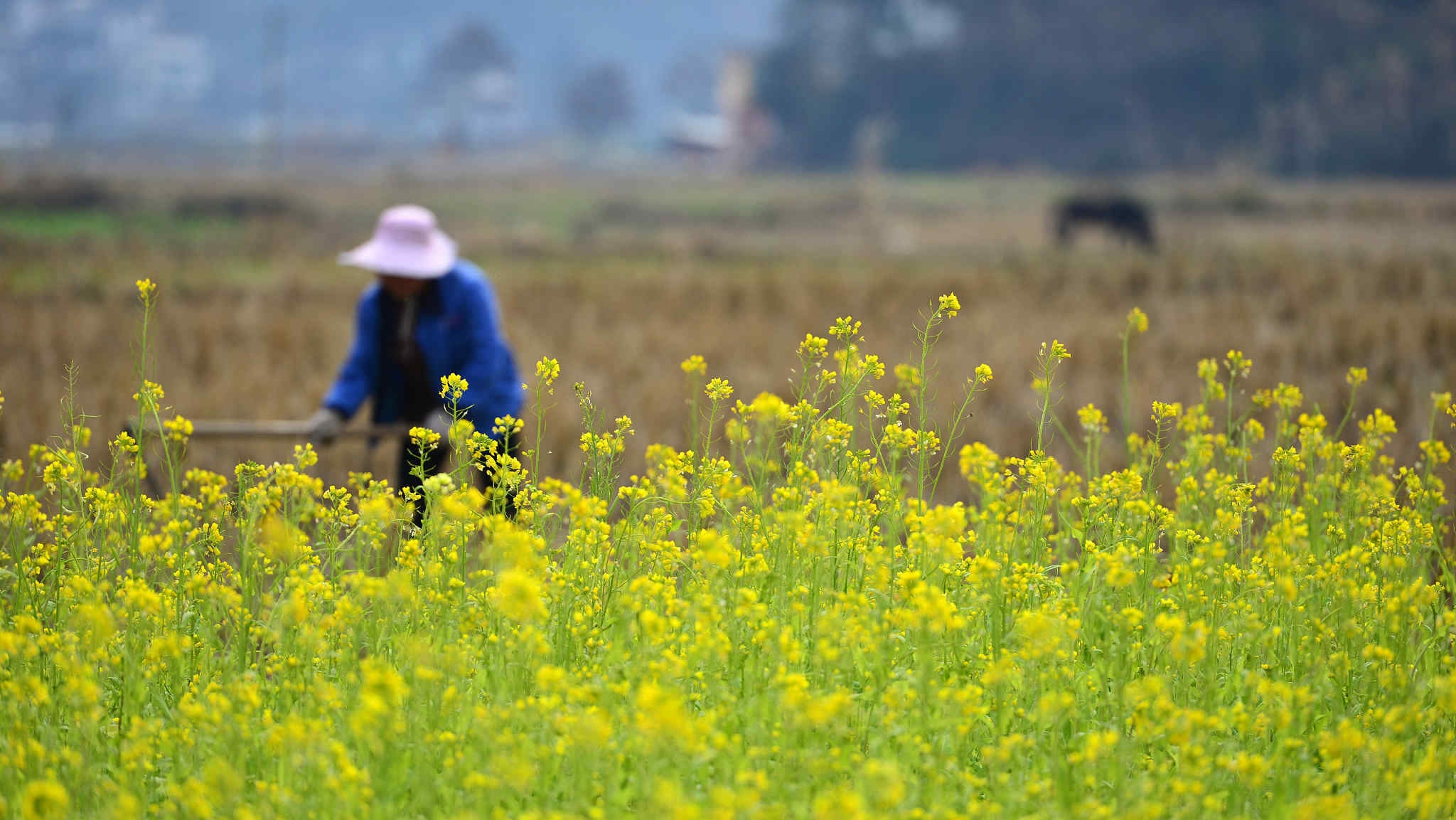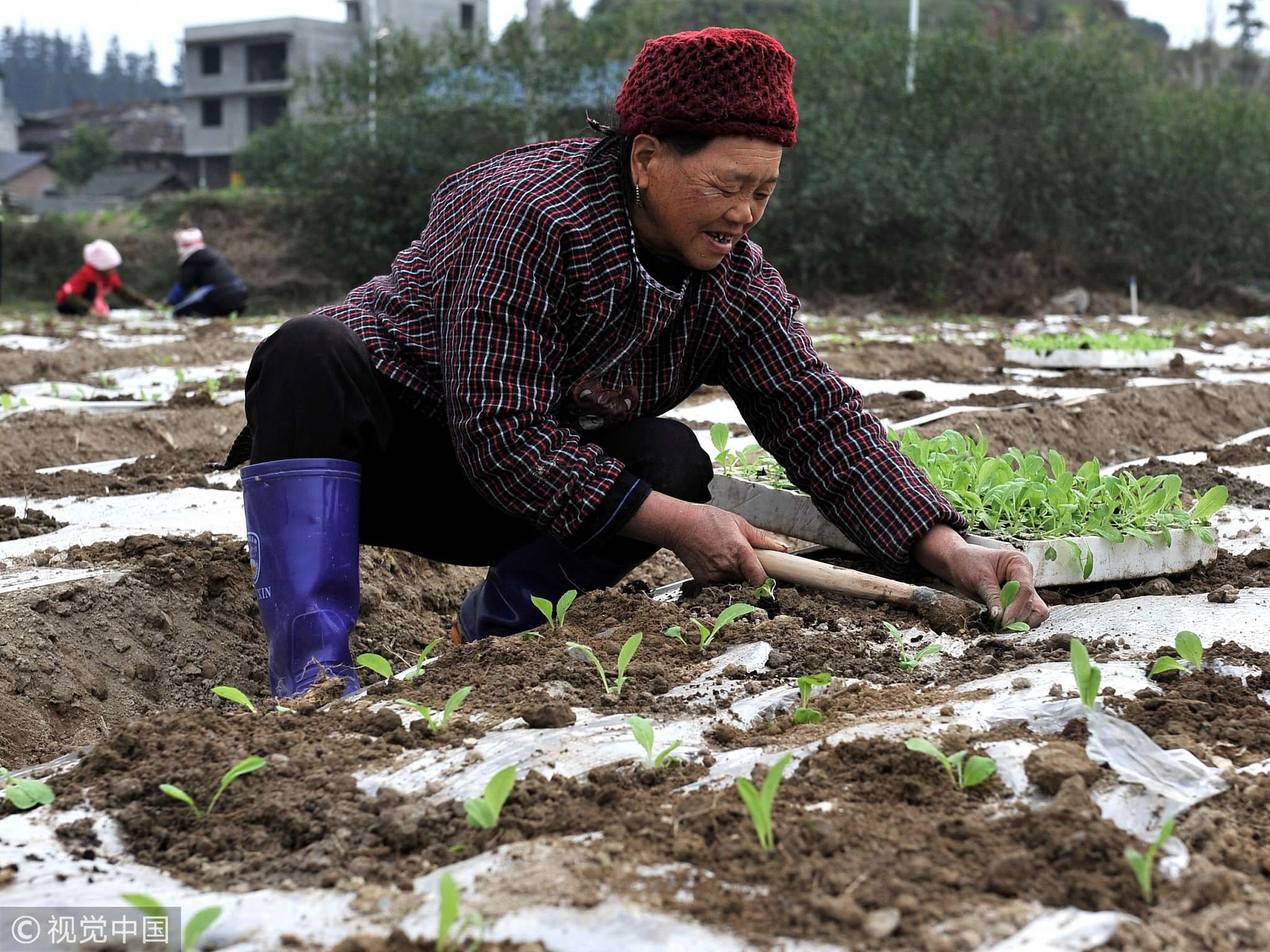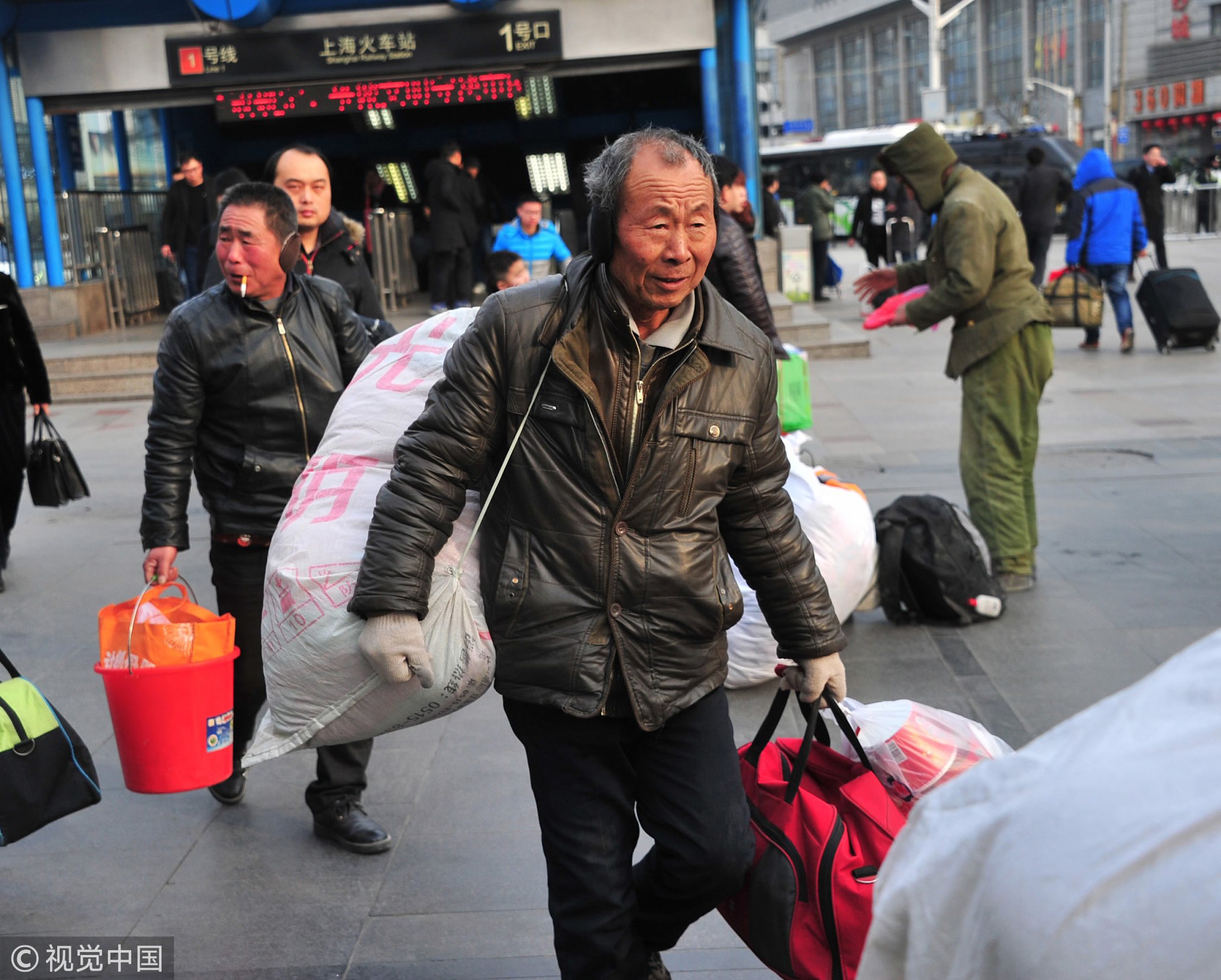
Opinions
16:33, 05-Feb-2018
Opinion: New agriculture, new countryside and new farmers in China
Guest commentary by Victor Gao

Editor’s Note:
The "No. 1 central document", the first policy statement of the year released by central authorities and regarded as an indicator of policy priorities, was issued on Sunday by the Central Committee of the Communist Party of China (CPC) and State Council. On Monday morning, Issues on Views of the CPC Central Committee and the State Council on Implementing the Rural Vitalization Strategy was introduced by Han Jun, director of the Office of the Central Rural Work Leading Group, and Wu Hongyao, deputy director of the Office of the Central Rural Work Leading Group.
For several decades in a row, the first document that the the Central Committee of the Communist Party of China (CPC) publishes every year has focused on agriculture, the countryside and farmers, highlighting the importance of rural development and reform in China. This year is no exception. The Central Committee just issued the first document of the year providing a comprehensive roadmap for the reform and development of China’s agriculture in the countryside involving hundreds of millions of farmers.

VCG Photo
VCG Photo
This year, China is celebrating the 40th anniversary of its political and economic reforms which started in 1978. It is important to recall that China’s reforms actually started in the countryside in 1978, when the household responsibility system was introduced. If you were a farmer in China 40 years ago, you became empowered by the new system and you started to take up responsibility for your farming land and production. This incentivized the Chinese farmers and boosted the productivity in the Chinese countryside. The rural reform also paved the way for urban reform and eventually triggered profound political and economic transformations in China.
Over the past 40 years, while great achievements have been made in China’s agriculture, in the Chinese countryside, and for the Chinese farmers, new problems and challenges have emerged.
The income disparity between urban China and rural China has intensified; agricultural production has become fragmented; farming efficiency is low; and the lack of access to quality education, health care, elderly care, and cultural and recreational activities have resulted in the hollowing out of many rural villages in China. Tens of millions of farmers in their prime age have left the countryside and became migrant workers in the cities, many of whom finding themselves in limbo.

Migrant workers head back home for the upcoming Spring Festival, in Shanghai, China, February 4, 2018. /VCG Photo
Migrant workers head back home for the upcoming Spring Festival, in Shanghai, China, February 4, 2018. /VCG Photo
Furthermore, the fragmentation and marginalization of farming in many rural villages have also resulted in the weakening of Party entities and administrative system at the grassroots level and the rise of corruption among local village administrators. Corruption and crimes have taken a toll on many people in the countryside. There has been an increase in grievances, injustices and crimes in the countryside. Over the past five years, the Chinese government's anti-corruption campaign has been mostly focused on high-ranking party and government officials in the cities, and has not touched much of the countryside in China.
The CPC Central Committee’s first document in 2018 is detailed, comprehensive, and extraordinary, providing a new roadmap for reinvigorating the countryside and incentivizing the farmers. The top priority is given to protecting the legitimate rights of farmers and mandating more efficient and effective ways to address grievances and injustices and to fight against crimes in the countryside. New policies are being provided, encouraging rural tourism, e-commerce, more dynamic interaction between rural and urban areas in China, allocation of more resources to take care of education, health care, elderly care and better environmental protection in the countryside.

Erhe Village in Shulan City, northeast China’s Jilin Province, is developing winter tourism to reinvigorate the rural economy, January 14, 2017. /VCG Photo
Erhe Village in Shulan City, northeast China’s Jilin Province, is developing winter tourism to reinvigorate the rural economy, January 14, 2017. /VCG Photo
China cannot achieve its overall modernization without the modernization of its agriculture and countryside. The Chinese Dream cannot be realized without realizing the dreams of the Chinese farmers. China cannot have a clean, transparent and accountable government without cleaning up injustices and crimes in the countryside. China cannot have a better environment and ecological life without cleaning up the air, rivers, mountains, soils and underground water in the Chinese countryside.
China’s agriculture will need to become new agriculture, integrating agriculture with science, technology, industry, Internet, modern logistics, new ways of sales and marketing, and more effective access to the markets and customers in the cities.
China’s countryside will need to become the new countryside, with better connectivity with urban China; better access to education, health care, elderly care and recreation and sports resources; and narrowing gap between rural and urban areas.
The Chinese farmers will become new farmers, with greater empowerment and incentives; better training and education; higher income and more benefits; greater protection of their legitimate rights. Their voices will better be heard, and dreams more and more within reach.
(Victor Gao is the chairman of China Energy Security Institute and vice president of Center for China and Globalization. The article reflects the author’s opinion, and not necessarily the view of CGTN.)

SITEMAP
Copyright © 2018 CGTN. Beijing ICP prepared NO.16065310-3
Copyright © 2018 CGTN. Beijing ICP prepared NO.16065310-3